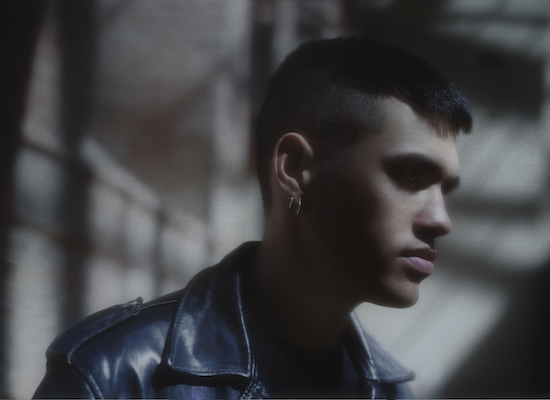Redeemer marks the debut of Hayden Payne’s Phase Fatale project on Dominick Fernow’s Hospital Productions label, as well as his debut album.
It’s a natural connection, both in terms of the record’s sound and, as Payne explains in a short Q&A below, for both the producer and label owner who "hit it off" having met in Warsaw last year. Streaming above is album track ‘Order of Severity’, a hard-edged cut which channels Payne’s past as part of a number of post-punk bands in his native of New York, combining his history with the techno that makes up his primary focus as a producer today.
Payne describes the record as a "deeply personal piece", something which he elaborates on further below, as well as taking us through the reasoning behind working on a more extended project than his previous EPs for Jealous God and Ostgut Ton’s Unterton label.
Redeemer is released on October 13, while an EP will also be released on the same day featuring extended versions of three of the album’s tracks with additional production from Jealous God label head Silent Servant.
After a few years of releasing EPs and 12"s, what made you decide to take the plunge and commit to a lengthier project?
Hayden Payne: I see each EP as an exercise in furthering my sound; experimenting and testing out different ideas both sonically and conceptually. Finally, I began to think it was time to take the plunge into a more extensive project where I could truly create something that was purely myself because of the freedom to go beyond just the EP format. This album is both a beginning of a new chapter and an end of another; to sum everything up that I have done, taking ideas I’ve flirted with in the past and alchemizing them with past influences and new concepts I’ve come up with since being in Berlin. Creating a further mutation of my sound all while laying the foundation for things to come.
Dominick [Fernow, also known as Prurient and Vatican Shadow] and I met for the first time last year at the Warsaw Airport McDonald’s and hit it off. He asked me later if I would want to make an album for him. It was a perfect fit as his own vision of techno is akin to mine: creating a dark, intense sound that is fitting to match the darkest, most intense physical atmospheres. With the ideal home base for the album in place, everything came together rather naturally.
You spent some time in a number of post-punk bands before producing as Phase Fatale. Do you view your music as a connecting point between that sound and the techno scene?
HP: For me, the connection between post-punk and techno has always existed. The same elements of mechanical rhythms, cold atmospherics, metallic noises, and dark melodies are essential pieces of both genres. The influence of post-punk and industrial clearly is present within the origins of techno music when you look at bands like Throbbing Gristle or New Order. Even many artists later went on to work in techno, such as D.A.F. or Lassigue Bendthaus. For example, Jeff Mills, when in Final Cut, collaborated with Chris Connelly who worked extensively with Ministry.
In my own bands, we had always used drum machines and synthesisers strongly as many of our main influences had, and I was usually the one behind programming those. It was only natural for me to evolve this style of working into something more deconstructed as I got deeper into techno. Something that was a direct and solitary outlet for me to create a more extreme, darker, and colder version of post-punk. I want to reference these influences but without nostalgia and build something that is constantly moving forward and redefining. I find techno as the perfect genre to build within as barely any rules exist, and there is so much still to be explored.
You’ve described Redeemer as a personal piece, so how did that manifest itself in the mood and sound of the record?
HP: Within all my productions, I try to channel the things from the everyday, outside world that disgust or disturb me. On this album, I chose to use a lot of guitars and vocals in the forefront. I find using guitar and voice a lot more physical for me personally. I have a direct correlation between the violence of my body and the instrument, and that is further felt upon listening to the music itself. The hitting of the strings or the straining of vocal cords lays bare making this album more cynical and bleak.


